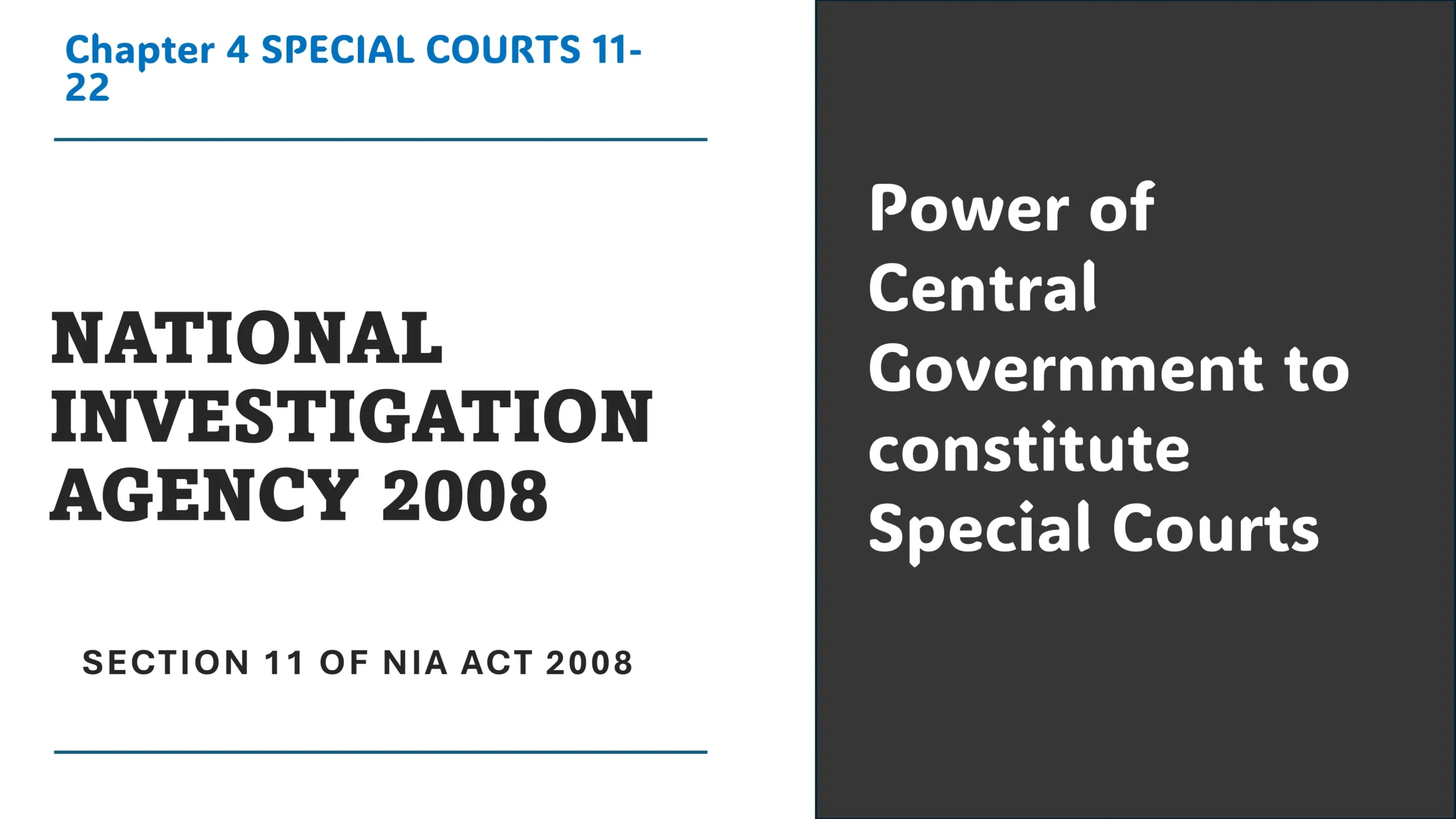Section 11 of NIA Act 2008: Power of Central Government to constitute Special Courts

Power of Central Government to constitute Special Courts NIA Act 2008
11. Power of Central Government to constitute Special Courts.—(1) The Central Government
shall, by notification in the Official Gazette, for the trial of Scheduled Offences, constitute one or more
Special Courts for such area or areas, or for such case or class or group of cases, as may be specified in
the notification.
(2) Where any question arises as to the jurisdiction of any Special Court, it shall be referred to the
Central Government whose decision in the matter shall be final.
(3) A Special Court shall be presided over by a judge to be appointed by the Central Government on
the recommendation of the Chief Justice of the High Court.
(4) The Agency may make an application to the Chief Justice of the High Court for appointment of a
Judge to preside over the Special Court.
(5) On receipt of an application under sub-section (4), the Chief Justice shall, as soon as possible and
not later than seven days, recommend the name of a judge for being appointed to preside over the Special
Court.
(6) The Central Government may, if required, appoint an additional judge or additional judges to the
Special Court, on the recommendation of the Chief Justice of the High Court.
(7) A person shall not be qualified for appointment as a judge or an additional judge of a Special
Court unless he is, immediately before such appointment, a Sessions Judge or an Additional Sessions
Judge in any State.
(8) For the removal of doubts, it is hereby provided that the attainment, by a person appointed as a
judge or an additional judge of a Special Court, of the age of superannuation under the rules applicable to
him in the service to which he belongs shall not affect his continuance as such judge or additional judge
and the Central Government may by order direct that he shall continue as judge until a specified date or
until completion of the trial of the case or cases before him as may be specified in that order.
(9) Where any additional judge or additional judges is or are appointed in a Special Court, the judge
of the Special Court may, from time to time, by general or special order, in writing, provide for the
distribution of business of the Special Court among all judges including himself and the additional judge
or additional judges and also for the disposal of urgent business in the event of his absence or the absence
of any additional judge.